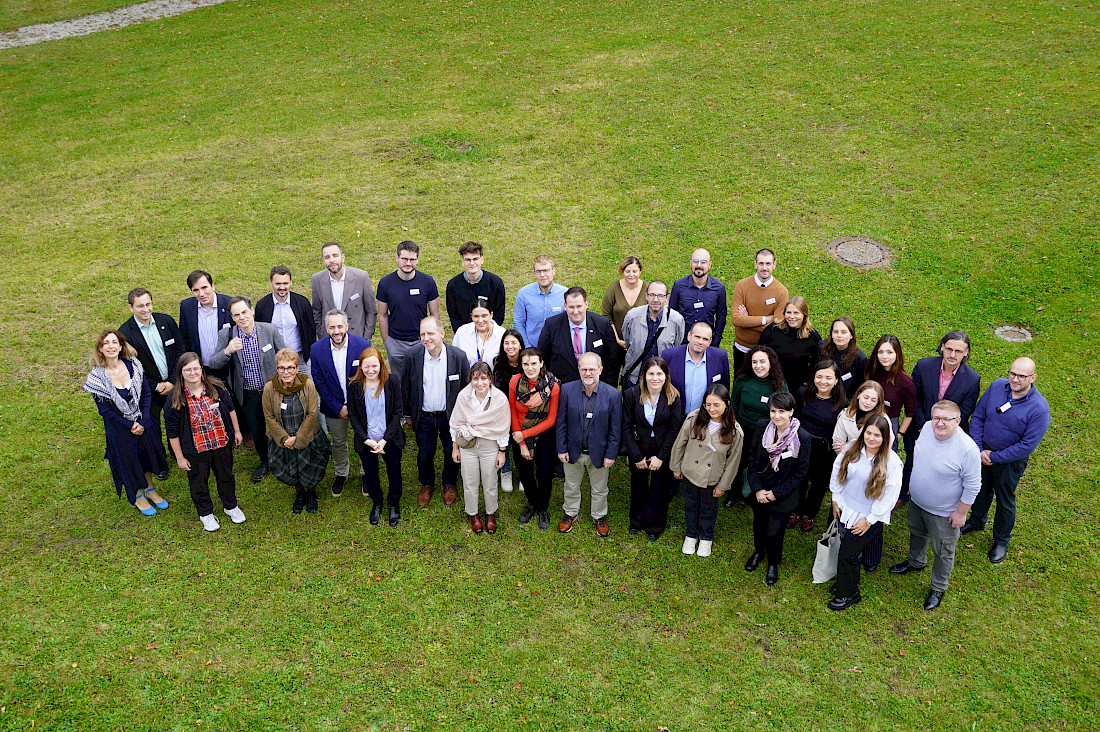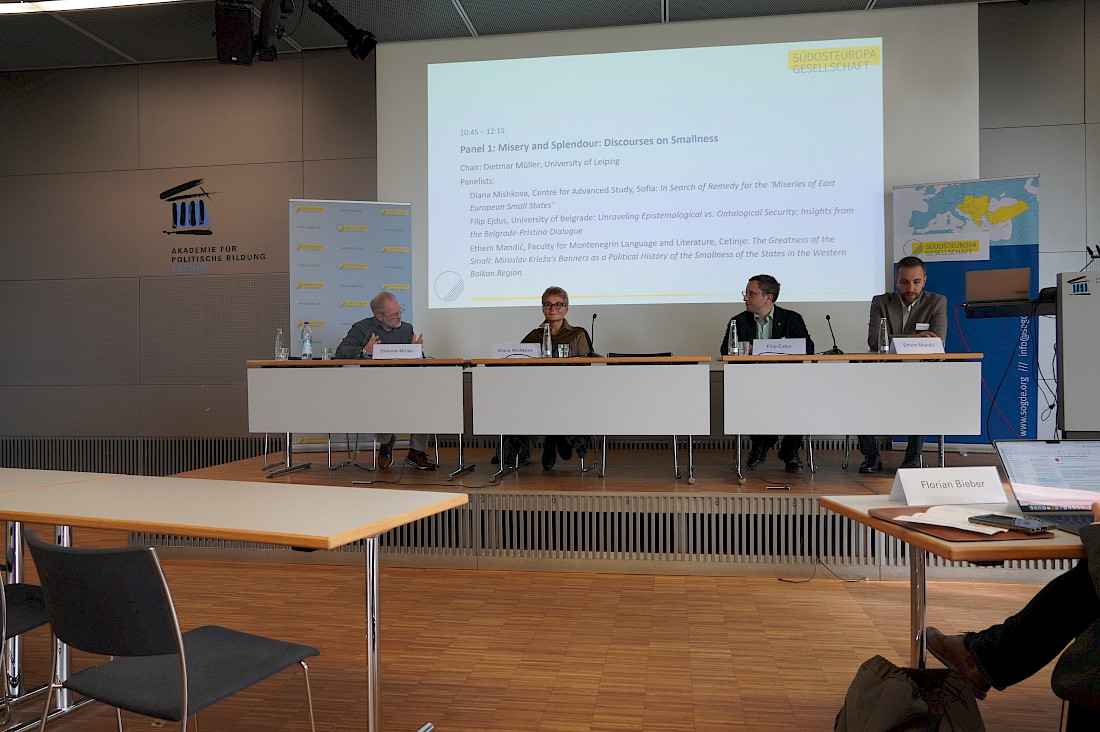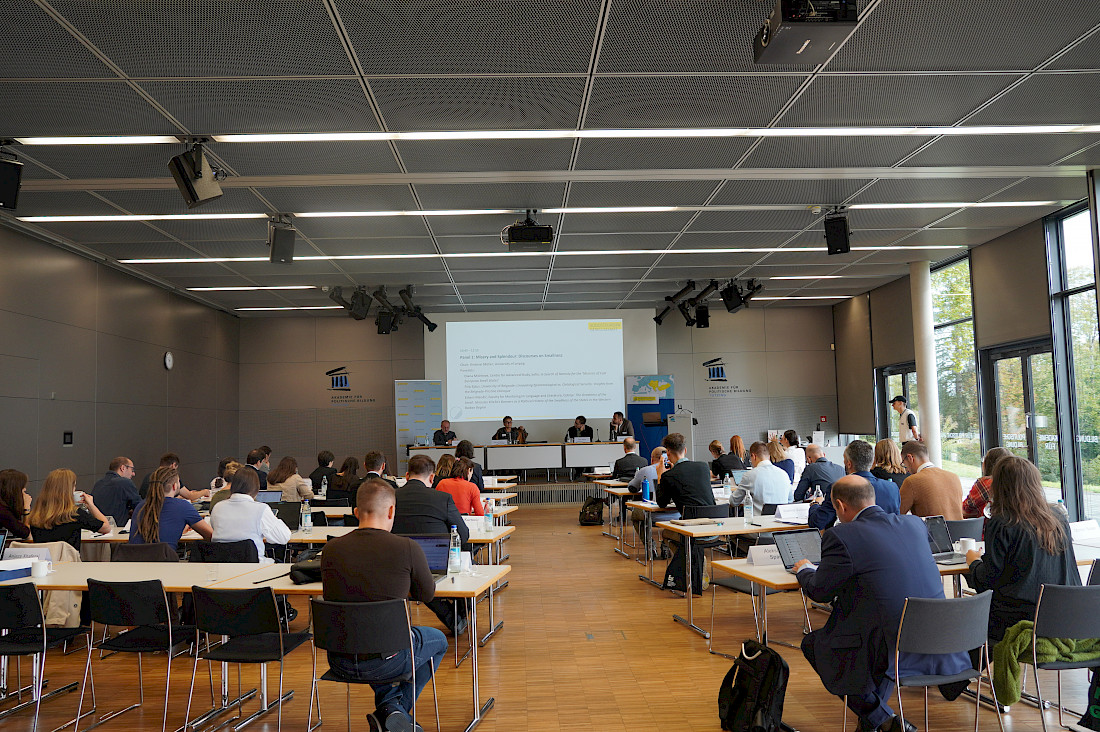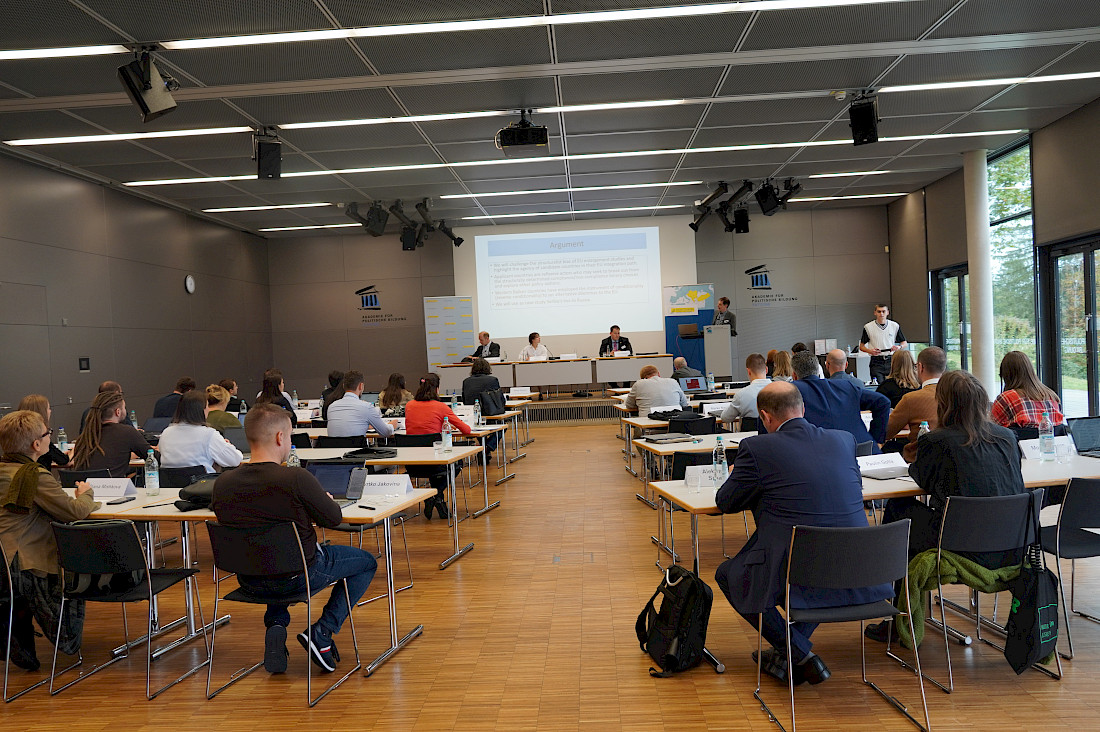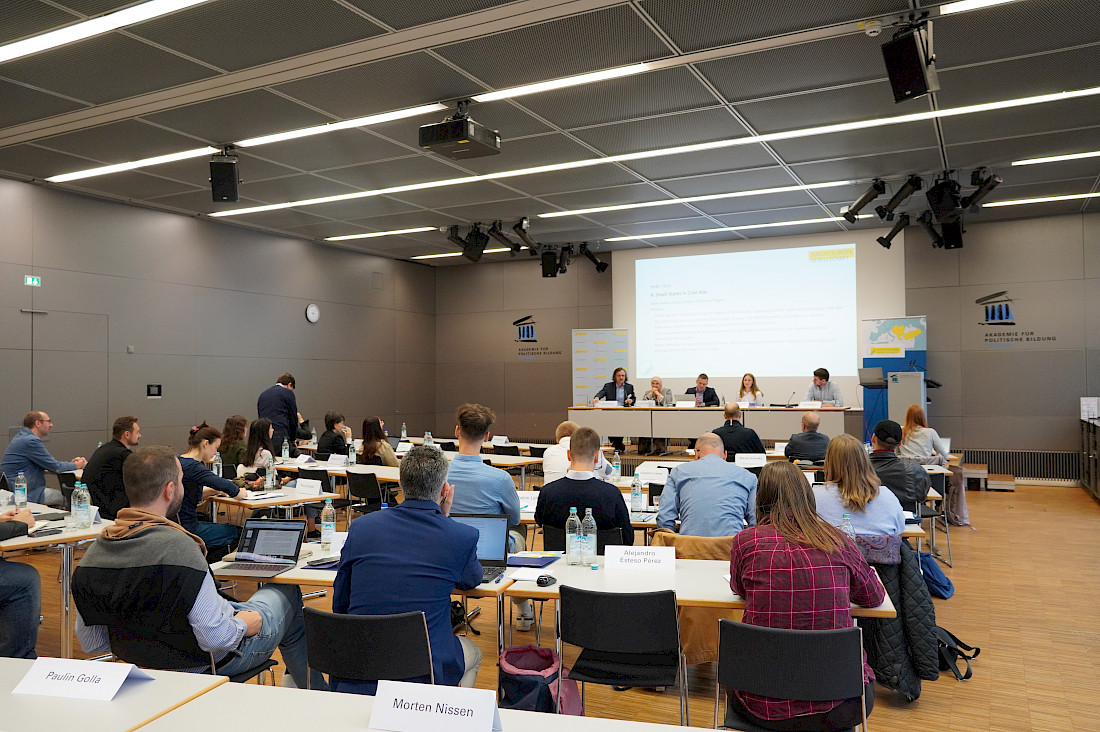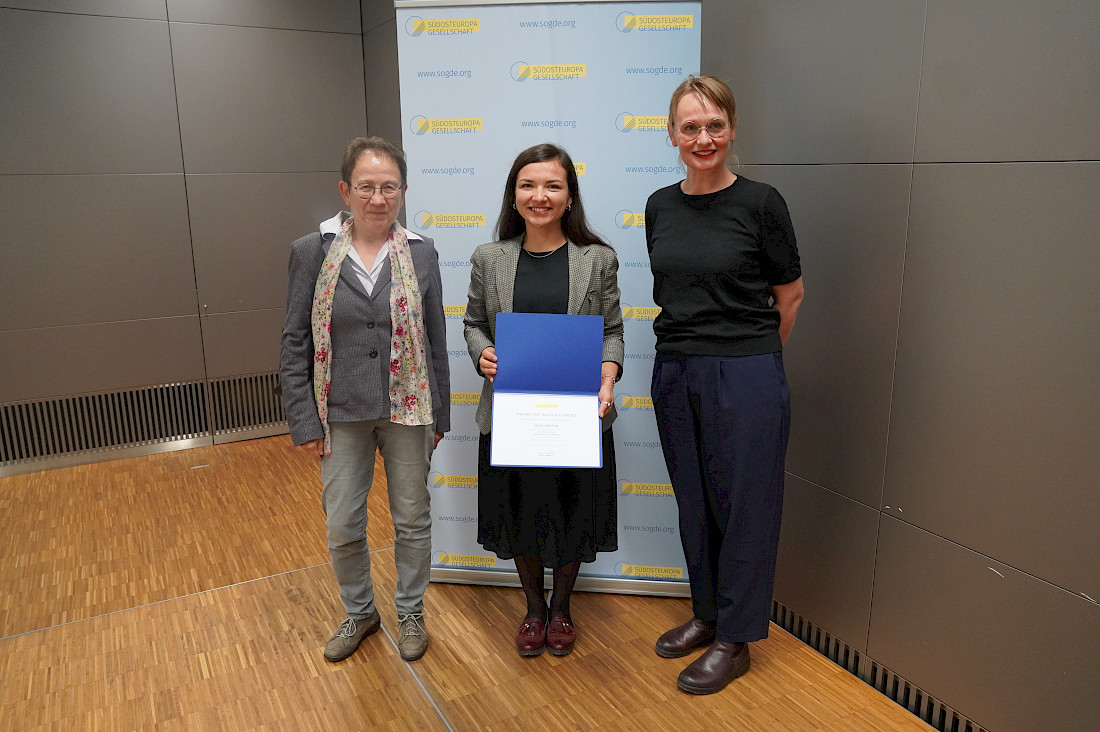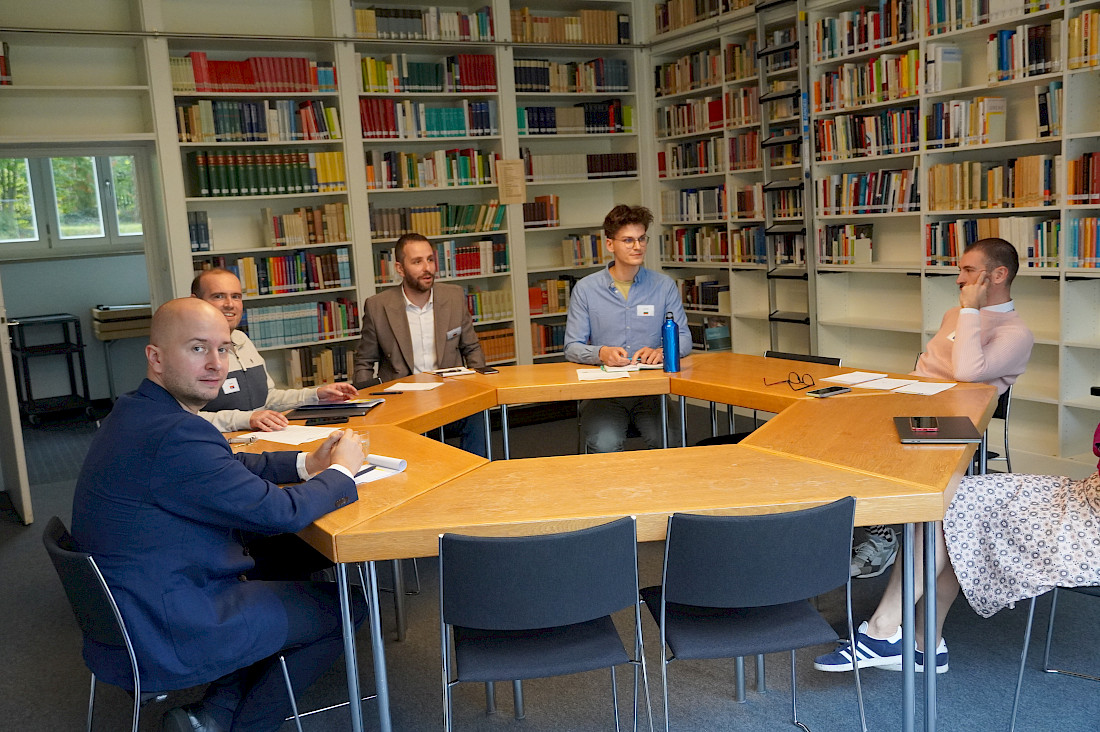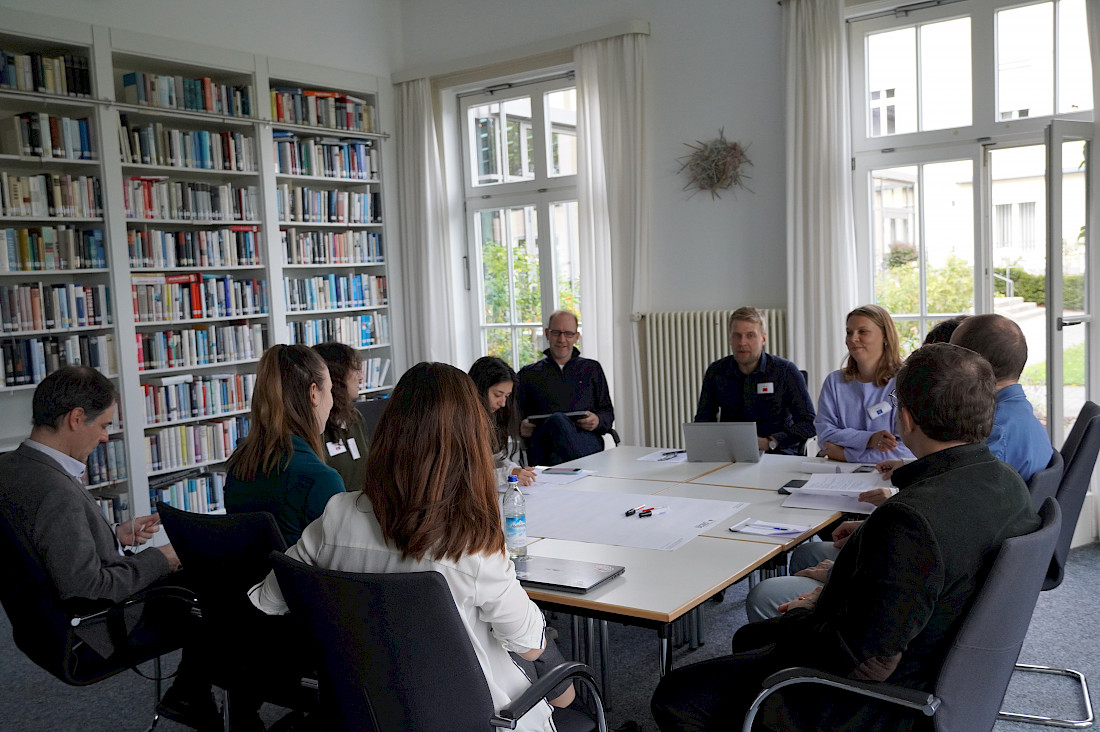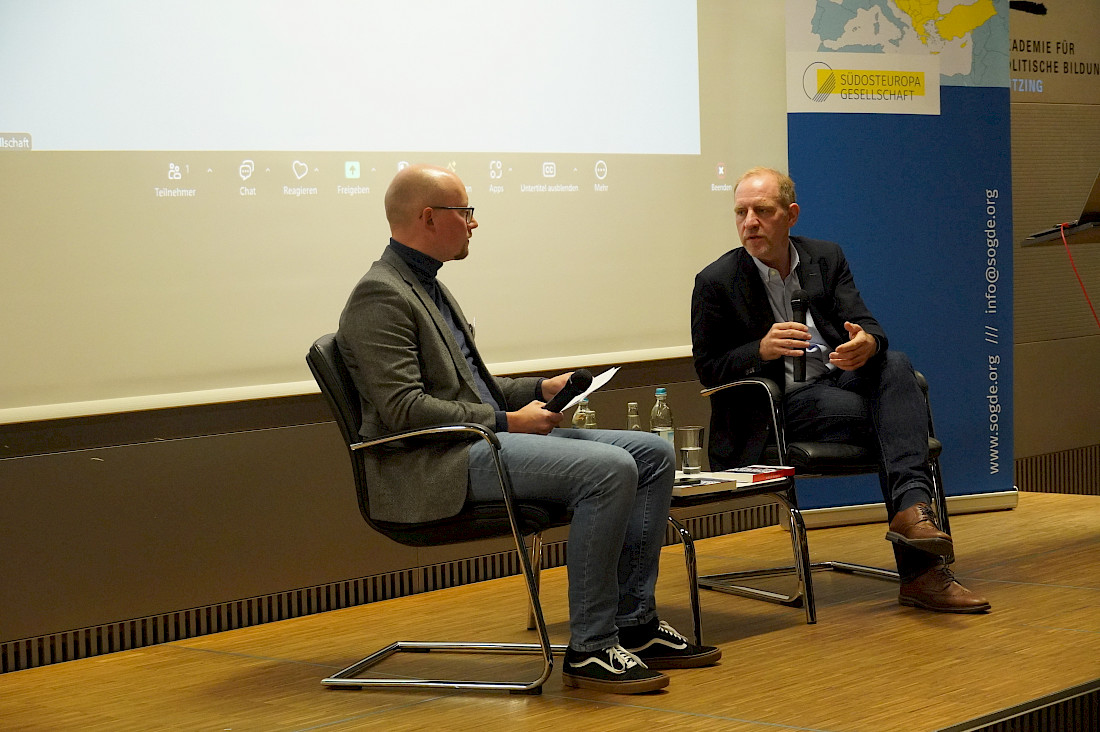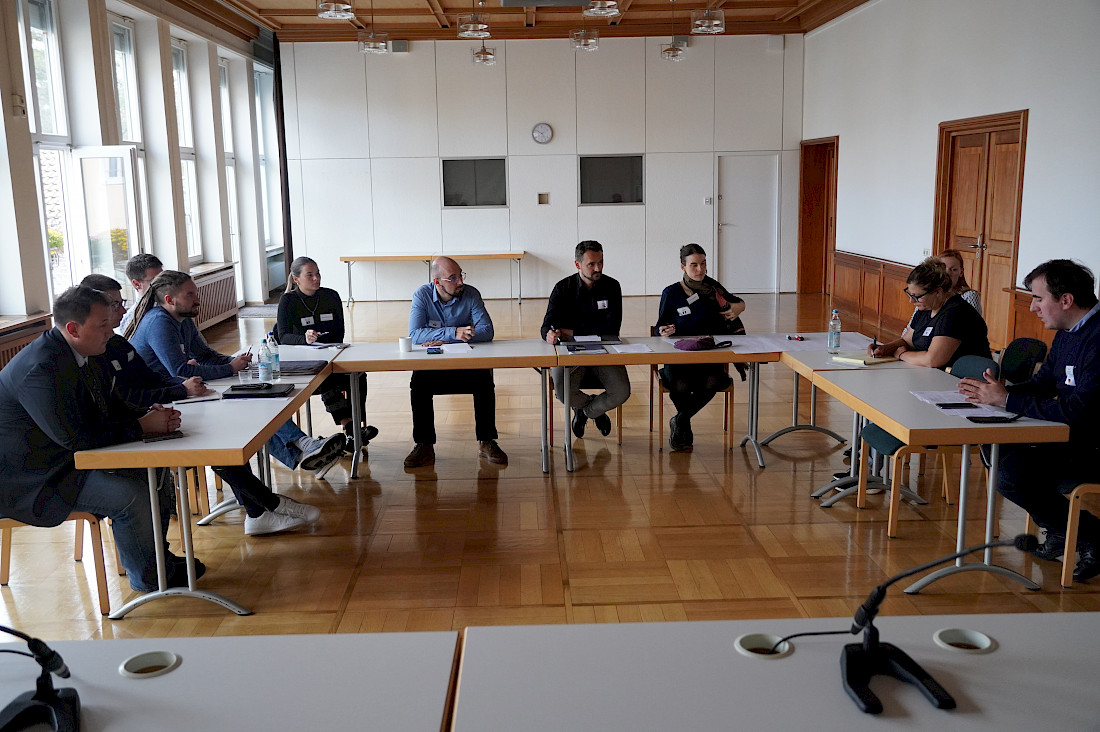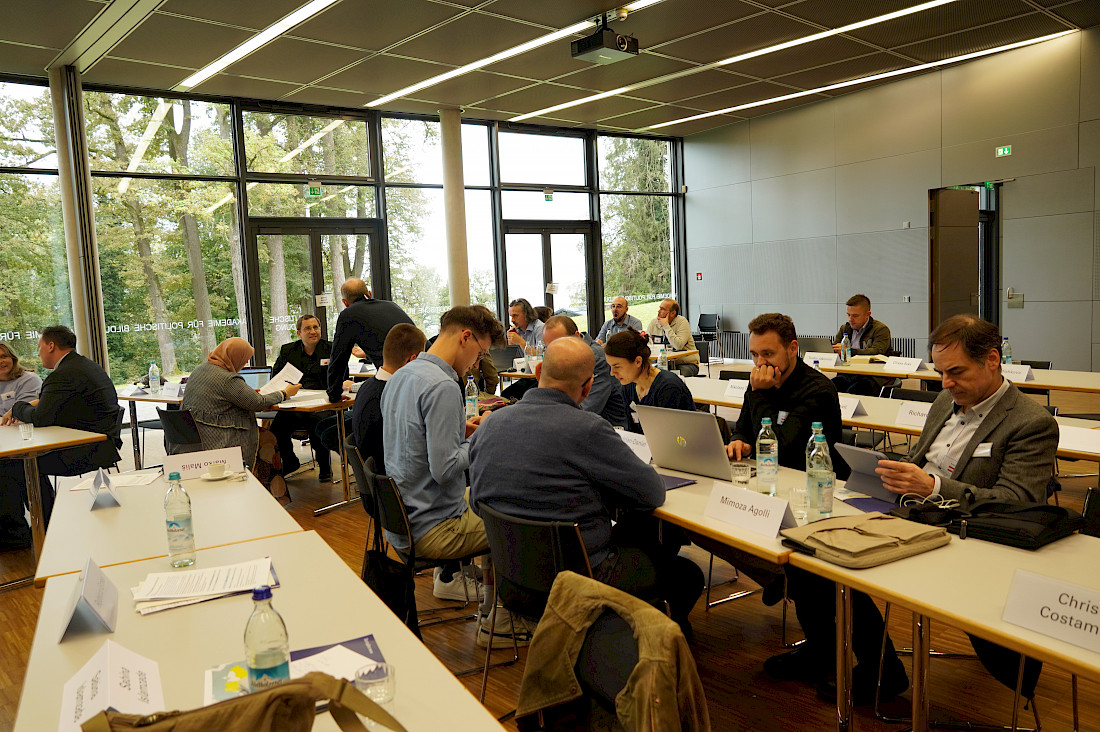Smallness in International Politics: The Agency of Small States in Southeast Europe
The International Academic Week (HSW) is the Southeast Europe Association’s (Südosteuropa-Gesellschaft – SOG) annual key event to bring together early-career researchers (MA/ PhD/ Post-Doc levels) and experienced scholars from all over Europe and beyond to present and discuss their research on the region. As always, it will take place in cooperation with the Akademie für Politische Bildung at the beautiful Lake Starnberg in Tutzing (close to Munich) from September 30 to October 4, 2024.
This year’s conference is hosted by PD Dr. Dietmar Müller (University of Leipzig) and Prof. Dr. Florian Bieber (University of Graz).
Call for Applications
Time and again, the elites of small states have perceived their role in international politics restricted by the size of their countries. In European politics from the 19th to the 21st century, we see different discourses and practices for overcoming and compensating the status of a perceived quantité négligeable – in the Concert of Powers of the 19th century, in the League of Nations in the interwar period, in the Cold War’s respective blocs, and currently in NATO and the European Union. No matter in which global governance’s shape of political security, small states faced the perennial problem that the emerging norm in international law, that states are fundamentally equal, does not translate in real equality. This International Academic Week approaches the “smallness problem” in international politics from a constructivist angle and with methods from international relations and security studies, the cultural history of politics, transnational feminism, and European studies. On different levels of agency, from local, to regional and national, from bi-and trilateral to international and in different fields of policy and society we analyse discourses and policies that tried to mitigate and compensate the smallness of nations and states.
Paradoxically, small state studies as an academic field reached a dead-end in the 1970s, precisely when small European states began playing an important role in the détente of the Helsinki-process within the CSCE (Conference on Security and Cooperation in Europe). As the then US- and British-dominated security studies could not reach a definition of smallness, no prediction of small states’ behaviour could be made, and therefore, small state studies were abandoned. Smallness was taken as a stable analytical category and politically, the small states’ room of manoeuvre between the superpowers was considered rather pessimistically. Basically, in pursuing strategies to overcome their ‘security dilemma’ only two options were theorized by international relations scholars: ‘balancing’ (playing one superpower against the other) and ‘bandwagoning’ (joining a powerful state in an alliance by sacrificing some of its independence). Surprisingly, a third and historically proven strategy, namely ‘building small states alliances’ was not taken into consideration.
The International Academic Week is looking for contributions from history, political science, law, and other related fields to analyse the role of agency and position of countries from Southeast Europe in the larger European and international state system. Contributions may explore regional cooperation and integration, both among state and non-state actors. We welcome critical reflections that explore these questions in a diachronic and comparative perspective, with a particular focus on four historical periods: a) the emergence of modern nation states in Southeast Europe in the 19th century, b) the state-system in interwar Europe, c) Cold-War Southeast Europe, and d) the 21st century.
Methodologically we build on approaches from the field of New Political History that highlight the constructivist character of foreign policies. In this first perspective, policies are not determined by the size of states or their geopolitical situatedness, but they are influenced in a highly contingent way by other factors as well, such as domestic, economic, and cultural configurations. Thus, we don’t take the smallness of states as determination of their restricted leverage in international politics. We rather start with the analysis of discourses on smallness, with ways how to relativize territorial smallness with other merits, such as narratives on special moral values as being the standard bearers of democracy and the nation-state vs. the oppressiveness of the imperial past. To put it simple, here we are more interested in what elites thought that they were doing, rather than what they actually did.
In a second perspective, we build on approaches from the Cultural History of Politics that focus on practices of collaboration, on the performativity of foreign relations, and how specific foreign relations goals are “sold” to the domestic publics, keeping in mind the changing importance of the public between the 19th and the 21st century.
In a third dimension, we build on theories of Multi-level Governance, which have originally been developed to better understand the European Union but can be applied for other contexts as well. Here, we address the interplay between national policies and the supra-national bodies, as well as supranational NGO activities.
Contributions to the International Academic Week thus can explore different attempts to collaborate among states in Southeast and Central Europe, such as the “Little Entente” and other forms of Balkan cooperation, joining larger alliances out of choice or coercion (such as the Non-Aligned Movement, NATO and Warsaw Pact), the relationship with larger powers (such as Russia or the United States), as well as the domestic discourses about agency, “smallness”, and positionality in the international system.
Selected contributions to the International Academic Week will be published as an edited volume in the SOG’s “Südosteuropa Jahrbuch” publication series.

